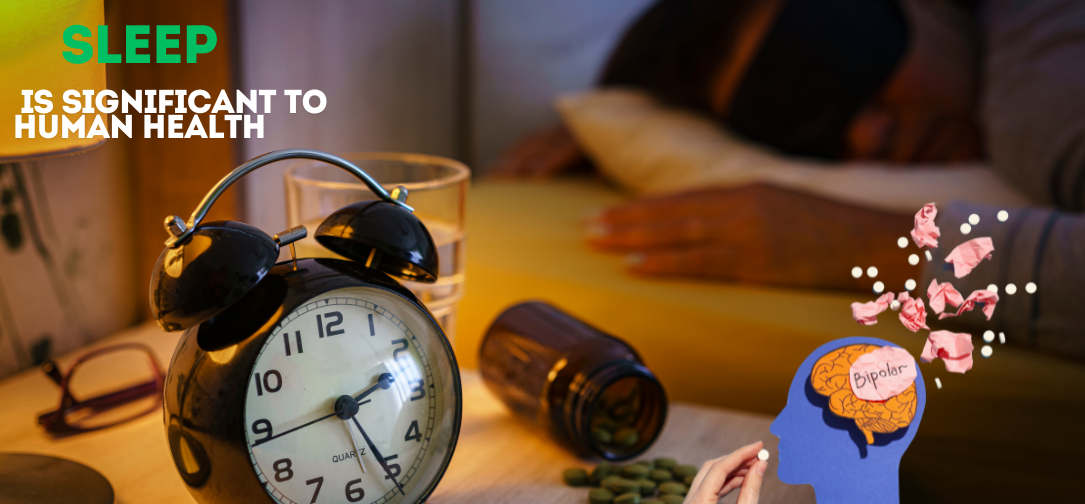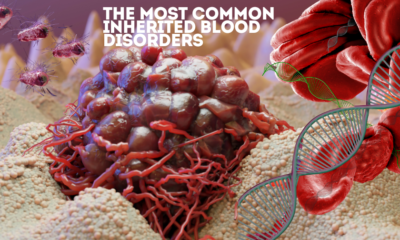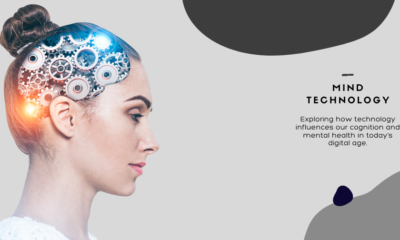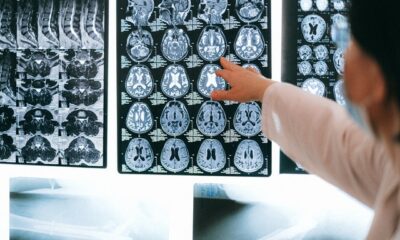Mental Health
Sleep Disorders: Causes, Effects, and Treatments

Sleep is a fundamental biological function essential to human health, yet millions of people across the globe suffer from sleep disorders. These disorders can have wide-ranging impacts on physical and mental health, productivity, safety, and overall quality of life. From insomnia to sleep apnea, narcolepsy, restless leg syndrome, and parasomnias, the spectrum of sleep disorders is vast, each characterized by different symptoms, causes, and treatments. This article explores the major types of sleep disorders, their causes, their effects on the individual and society, and the various treatment options available.
The Importance of Sleep
Before delving into the nature of sleep disorders, it’s critical to understand the importance of sleep itself. Sleep is a complex physiological process that restores energy, regulates hormones, consolidates memories, and facilitates growth and repair. Humans typically spend about one-third of their lives asleep, yet this time is by no means idle. During sleep, the brain cycles through various stages, including non-rapid eye movement (NREM) and rapid eye movement (REM) sleep, each contributing to different functions like physical restoration and cognitive processing.
Adequate sleep is crucial for numerous aspects of health. It supports the immune system, influences metabolism, and regulates emotions. The brain also clears out toxins, including beta-amyloid plaques, which have been linked to Alzheimer’s disease. Conversely, insufficient or poor-quality sleep has been associated with a higher risk of chronic conditions such as cardiovascular diseases, diabetes, obesity, depression, and even premature death.
Major Types of Sleep Disorders
Sleep disorders are broadly classified into several categories, each affecting the body’s ability to regulate the sleep-wake cycle. Below are the most common types:
1. Insomnia
Description:
Insomnia is the most common sleep disorder and affects millions globally. It is characterized by difficulty falling asleep, staying asleep, or waking up too early and being unable to go back to sleep. Insomnia can be acute (short-term) or chronic (lasting more than three months).
Causes:
- Stress: Emotional or mental stress, such as worry over work, relationships, or financial issues, can trigger acute insomnia.
- Lifestyle habits: Irregular sleep schedules, excessive caffeine or alcohol intake, and poor sleep environments can contribute.
- Medical conditions: Chronic pain, gastrointestinal issues (like acid reflux), asthma, and mental health disorders (such as anxiety and depression) are common contributors to chronic insomnia.
- Medications: Some medications, such as antidepressants, beta-blockers, and corticosteroids, have insomnia as a side effect.
Effects:
Insomnia leads to excessive daytime sleepiness, irritability, difficulty concentrating, and mood disturbances. Long-term, it increases the risk of cardiovascular diseases, hypertension, and diabetes. Insomnia can also exacerbate mental health disorders, creating a vicious cycle of anxiety and sleep deprivation.
Treatment:
Treatment for insomnia includes cognitive-behavioral therapy for insomnia (CBT-I), sleep hygiene improvements, relaxation techniques, and, in some cases, medication like benzodiazepines or melatonin agonists.
2. Sleep Apnea
Description:
Sleep apnea is a potentially serious sleep disorder where breathing repeatedly stops and starts during sleep. There are two main types:
- Obstructive Sleep Apnea (OSA): The most common form, caused by the relaxation of throat muscles that obstruct the airway.
- Central Sleep Apnea (CSA): A less common form caused by the brain’s failure to signal the muscles to breathe.
Causes:
- Obesity: Excessive weight, especially around the neck, can obstruct the airway.
- Anatomy: Narrowed airways, large tonsils, or a deviated septum can contribute to OSA.
- Alcohol and sedatives: These substances relax the muscles in the throat, making apnea more likely.
- Neurological conditions: CSA can result from conditions like Parkinson’s disease or a stroke that affects brain signals.
Effects:
Individuals with untreated sleep apnea experience fragmented sleep, often without being fully aware of the awakenings. This leads to extreme daytime fatigue, irritability, and difficulty concentrating. OSA, in particular, is linked to high blood pressure, heart disease, type 2 diabetes, stroke, and even premature death. In severe cases, sleep apnea can lead to fatal outcomes due to the interruptions in oxygen supply to vital organs.
Treatment:
- Continuous Positive Airway Pressure (CPAP): A CPAP machine delivers air pressure through a mask to keep the airway open during sleep.
- Lifestyle changes: Weight loss, quitting smoking, and avoiding alcohol can help.
- Surgical options: In cases of severe OSA, surgeries such as uvulopalatopharyngoplasty (UPPP) can help widen the airway.
3. Narcolepsy
Description:
Narcolepsy is a neurological disorder that affects the brain’s ability to regulate sleep-wake cycles. People with narcolepsy often experience excessive daytime sleepiness and sudden “sleep attacks,” where they fall asleep unexpectedly during the day. Some may also experience cataplexy, a sudden loss of muscle control triggered by strong emotions.
Causes:
Narcolepsy is thought to be caused by a lack of hypocretin, a brain chemical that regulates wakefulness. The reasons for this deficiency may include genetic factors, autoimmune disorders, or brain injuries.
Effects:
Narcolepsy profoundly disrupts daily life, making it difficult to maintain attention and stay awake during work, school, or even while driving, which can be hazardous. Additionally, individuals with narcolepsy may suffer from sleep paralysis (a temporary inability to move or speak when falling asleep or waking up) and hallucinations during the transition between sleep and wakefulness.
Treatment:
There is no cure for narcolepsy, but medications such as stimulants (to improve wakefulness) and antidepressants (to manage cataplexy) can alleviate symptoms. Behavioral strategies, such as regular naps and scheduled sleep, also help.
4. Restless Leg Syndrome (RLS)
Description:
Restless Leg Syndrome (RLS), also known as Willis-Ekbom disease, is a neurological disorder characterized by an uncontrollable urge to move the legs, usually due to discomfort or unpleasant sensations. These symptoms tend to worsen at night, making it difficult to fall asleep.
Causes:
The exact cause of RLS is unknown, but it may be related to imbalances in dopamine, a neurotransmitter that controls muscle movement. Other contributing factors include:
- Genetics: RLS tends to run in families.
- Iron deficiency: Low levels of iron in the brain may be linked to RLS.
- Chronic conditions: Diabetes, kidney failure, and peripheral neuropathy are associated with RLS.
Effects:
The constant urge to move the legs disrupts sleep, leading to daytime fatigue, irritability, and difficulties with concentration. Severe cases of RLS can significantly impair quality of life and may be associated with depression and anxiety.
Treatment:
Treatments for RLS include iron supplements (if the person is deficient), medications that increase dopamine activity, and lifestyle changes such as reducing caffeine and exercising regularly.
5. Parasomnias
Description:
Parasomnias are disruptive sleep-related behaviors or experiences, which include disorders such as:
- Sleepwalking: Walking or performing complex behaviors while in a state of sleep.
- Night terrors: Episodes of intense fear, screaming, or thrashing during NREM sleep, typically with no memory of the event.
- REM Sleep Behavior Disorder (RBD): Acting out vivid dreams, often violently, during REM sleep due to the failure of normal muscle paralysis.
Causes:
Parasomnias can be triggered by stress, sleep deprivation, certain medications, or underlying health conditions like Parkinson’s disease or epilepsy. Genetics and environmental factors (such as sleeping in an unfamiliar place) also play a role.
Effects:
Parasomnias can lead to injuries, both to the individual and others, especially in cases of sleepwalking or RBD. Night terrors and sleepwalking can also severely disrupt sleep quality for the affected person and anyone sharing a sleeping space with them.
Treatment:
Treatments for parasomnias vary based on the specific condition. They may include medications such as antidepressants, benzodiazepines, or melatonin, as well as safety measures like creating a hazard-free sleep environment.
Causes of Sleep Disorders
The causes of sleep disorders are multifactorial and may include the following:
- Genetic Factors
Many sleep disorders, including narcolepsy and RLS, have a genetic component. Family history is often a predictor of whether someone may develop these disorders.
- Medical Conditions
Chronic health conditions such as obesity, cardiovascular diseases, diabetes, and mental health disorders (anxiety, depression, and bipolar disorder) can increase the risk of developing sleep disorders.
- Environmental Factors
Lifestyle choices such as shift work, irregular sleep schedules, excessive caffeine intake, and poor sleep hygiene (inconsistent bedtimes, lack of routine) can contribute to sleep disturbances.
- Medications
Certain medications, including those for asthma, allergies, high blood pressure, and depression, can interfere with sleep patterns. Stimulants, such as nicotine and caffeine, also disrupt sleep.
- Age
As people age, the quality of sleep often declines, and sleep disorders become more common. Older adults are more likely to develop conditions such as sleep apnea and insomnia due to age-related changes in physiology and lifestyle.
Effects of Sleep Disorders
The effects of sleep disorders are far-reaching, affecting the individual, their immediate social environment, and society at large. The consequences vary based on the severity and type of the sleep disorder.
1) Physical Health
Sleep disorders are closely linked to a range of chronic health conditions. For instance:
- Cardiovascular diseases: Disorders like sleep apnea increase the risk of hypertension, heart attacks, and strokes due to repeated oxygen deprivation during sleep.
- Diabetes: Poor sleep is associated with insulin resistance and a higher risk of type 2 diabetes.
- Obesity: Sleep deprivation disrupts hormones that regulate hunger and satiety, contributing to weight gain.
- Weakened immunity: Lack of sleep impairs the immune system, making the body more susceptible to infections.
2) Mental Health
Sleep and mental health are intimately connected. Insomnia and other sleep disorders can exacerbate conditions like depression and anxiety, while sleep disturbances can increase the risk of developing mood disorders. Individuals with sleep disorders are also at higher risk for substance abuse, as they may turn to alcohol or drugs as a coping mechanism.
3) Cognitive Functioning
Sleep disorders impair cognitive abilities such as memory, attention, decision-making, and problem-solving. Chronic sleep deprivation, for instance, affects the brain’s ability to process information and consolidate memories, leading to difficulties in both learning and everyday tasks.
4) Safety
Excessive daytime sleepiness caused by sleep disorders increases the risk of accidents, both at work and on the road. Sleep-deprived drivers are more likely to cause traffic accidents, while workers in industries that require sustained attention (such as healthcare, aviation, and construction) may make critical errors.
5) Quality of Life
Living with a sleep disorder often diminishes one’s quality of life. Chronic fatigue, irritability, and poor performance at work or school can strain relationships and reduce overall life satisfaction.
Treatments for Sleep Disorders
Treating sleep disorders requires a comprehensive approach that addresses both the underlying cause and the symptoms. The treatment options vary depending on the type and severity of the disorder.
1) Behavioral Therapies
For many sleep disorders, behavioral changes can significantly improve symptoms.
- Cognitive Behavioral Therapy for Insomnia (CBT-I): CBT-I is a structured program that helps individuals identify and change thoughts and behaviors that interfere with sleep. It is considered the gold standard treatment for chronic insomnia.
- Sleep hygiene education: Simple lifestyle adjustments, such as maintaining a consistent sleep schedule, avoiding caffeine and alcohol close to bedtime, and creating a relaxing bedtime routine, can improve sleep quality.
2) Medications
Pharmacological treatments can be used to manage specific sleep disorders.
- Sleep aids: Medications like benzodiazepines, non-benzodiazepine hypnotics (e.g., zolpidem), and melatonin agonists are commonly prescribed for insomnia.
- Stimulants: Drugs like modafinil and armodafinil help manage daytime sleepiness in conditions like narcolepsy.
- Dopamine agonists: These are used to treat RLS by increasing dopamine levels and reducing leg discomfort.
3) Medical Devices
In the case of sleep apnea, medical devices are often necessary for treatment.
- CPAP machines: Continuous Positive Airway Pressure (CPAP) machines are the most effective treatment for obstructive sleep apnea, keeping the airway open by providing a steady stream of air through a mask.
5) Surgical Interventions
For severe cases of sleep apnea or anatomical abnormalities causing sleep disruption, surgical options may be considered.
- Uvulopalatopharyngoplasty (UPPP): This surgery involves removing tissue from the back of the throat to open the airway.
- Genioglossus advancement: This procedure moves the tongue muscle forward to prevent airway blockage.
5) Alternative and Complementary Therapies
Some individuals turn to alternative therapies, such as acupuncture, yoga, meditation, and herbal supplements like valerian root or chamomile, to manage sleep problems. While these treatments are not universally accepted as standard care, they can complement traditional therapies, especially for those seeking holistic approaches to sleep health.
Conclusion
Sleep disorders are complex and pervasive conditions that affect millions of people worldwide. Whether it’s insomnia, sleep apnea, narcolepsy, or another condition, the consequences of sleep disruption can be profound, influencing physical health, mental well-being, and daily functioning. Understanding the causes and effects of sleep disorders is the first step in addressing them effectively.
Fortunately, a range of treatment options exists, from behavioral therapies and medications to medical devices and surgeries. For many individuals, a combination of treatments, tailored to their specific condition, offers the best chance of improving sleep quality and reclaiming a better quality of life.
Given the fundamental role that sleep plays in overall health, addressing sleep disorders is not just a matter of enhancing rest it’s a crucial component of comprehensive healthcare. Prioritizing sleep, recognizing the signs of sleep disorders, and seeking timely treatment can make a significant difference in one’s health and well-being.
-

 Press Release7 days ago
Press Release7 days agoCV5 Capital Announces Standout Performance of Cryptanium Fund I SP, Beating Industry Benchmarks
-

 Business4 days ago
Business4 days agoS&P 500 Soars in Best May in Decades Amid Tariff Relief and Nvidia’s Surge
-

 Government7 days ago
Government7 days agoExperts Warn of U.S. Slide Towards Authoritarianism Under Trump Administration
-

 Healthcare5 days ago
Healthcare5 days agoAttention Economy Arms Race: Reclaim Your Focus in a World Designed to Distract You
-

 Immigration4 days ago
Immigration4 days agoTrump’s Immigration Crackdown: Legal Battles and Policy Shifts
-

 Business4 days ago
Business4 days agoUS Stock Market Soars in May Amidst Tariff Tensions and Inflation Worries
-

 Government4 days ago
Government4 days agoTrump Administration’s Government Reshaping Efforts Face Criticism and Legal Battles
-

 Business4 days ago
Business4 days agoTrump’s Tariffs: A Global Economic Reckoning


























